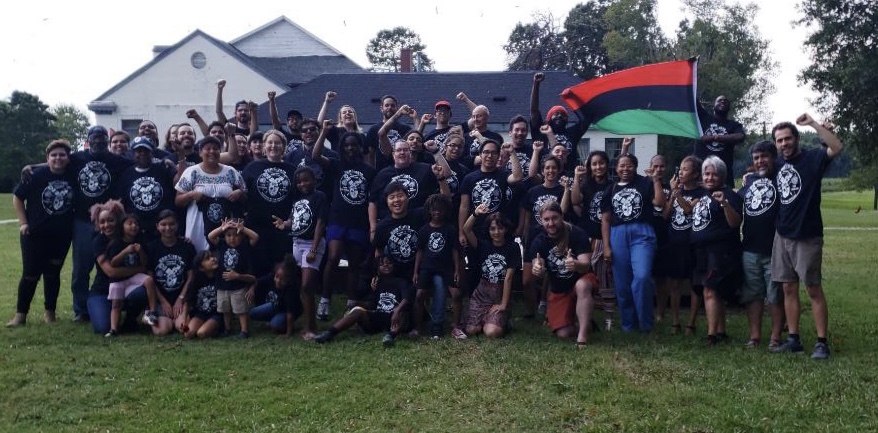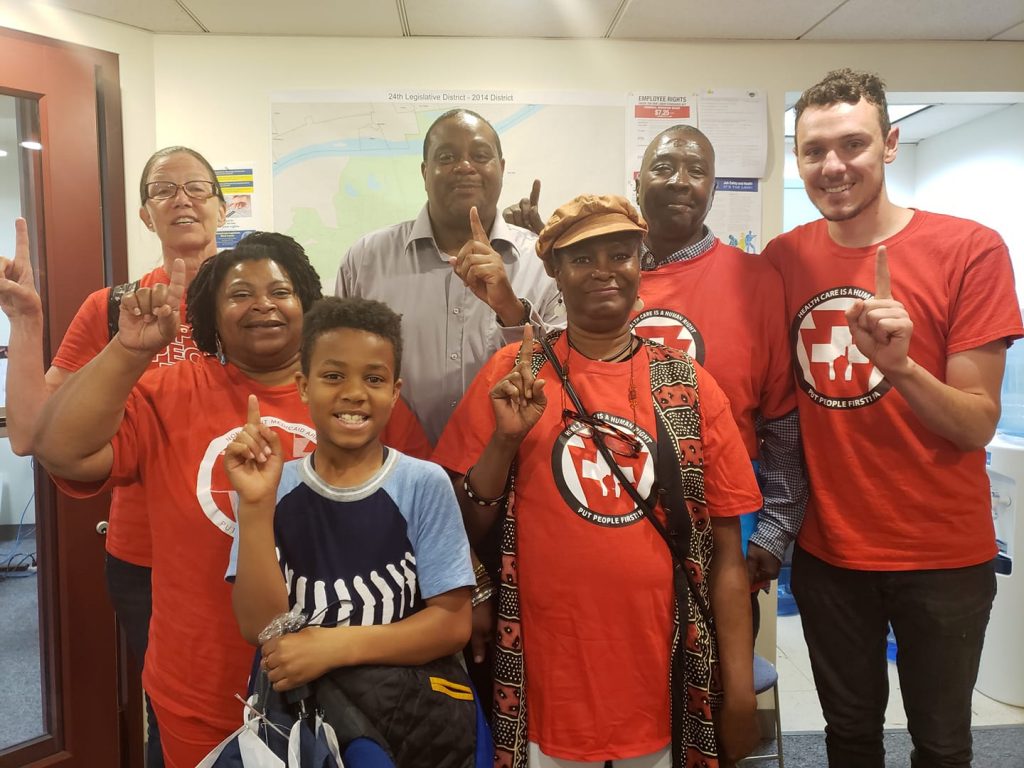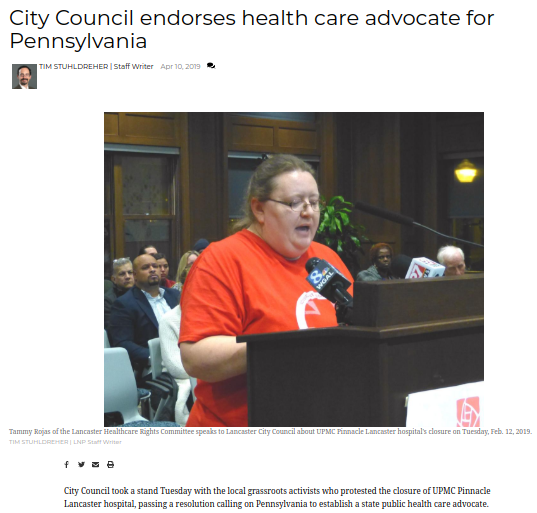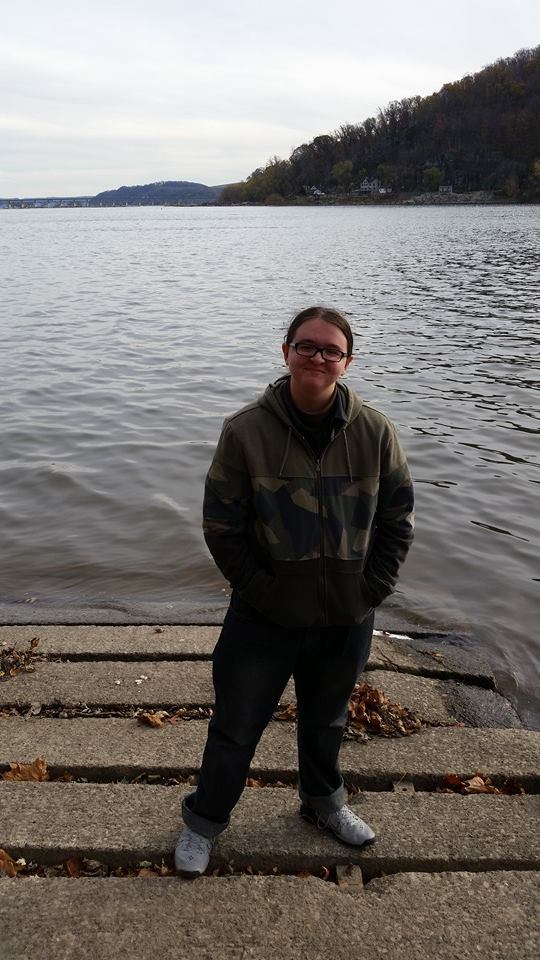by the delegation to the Political Education Project (PEP) school with support from the Political Education and Leadership Development team
For three weeks this summer, Kiki, Tammy, Hope and Jae attended the Popular Education Project’s Summer School of Resistance as the delegation from Put People First! PA. The school was held in North Carolina, and it brought together about 40 students from organizations around the country who work on different fronts of struggle for our class, like immigration, cultural work, wages, housing, health care and more..

Each day included formal classes and material to study outside of class, on history, philosophy, theory and culture related to our work of organizing our base in struggle for our human rights. An important part of the pedagogy was the organization of the school, with students divided into base groups which were responsible for the various tasks of running the school, called militant work. This included: cleaning and maintaining the space, translation, cultural work, supporting teachers, facilitating debate, etc.
Our PPF delegation deeply experienced the struggle of the school, and came away with some key lessons:
- “The Ruling Ideas are the Ideas of the Ruling Class” The people who profit off of our poverty control the story about why that system exists, and we have to struggle to understand the truth so that we can build a radically better, entirely different system.
- Discipline and study are vital to our work. Our theory and practice must be built upon each other. If we want to win we are always striving to be smarter and stronger.
- We must combat individualism. Through shared militant work, organizational structures that ensure collectivity, learning to engage in feedback and self-reflection.
- Our struggle in the U.S. is bound up with the liberation of the working class across the world. The war economy and U.S. imperialism exploit and oppress the poor at home and abroad. We know we have a common enemy that uses us as pawns.
- A strength of the ruling class is divide and conquer politics. We have to develop class consciousness and learn to not see each other as the enemy. Some very hard differences came up at the school around race and levels of education.
- Healthcare is a major weakness of the ruling class. They have no good defense for the for-profit healthcare system that is killing us. All sectors of the working class are affected by it, so we can unite around this struggle.
- Organization is the strength of the working class. We are learning to powerfully show up for each other in collectivity. We struggle and heal together and love each other.


